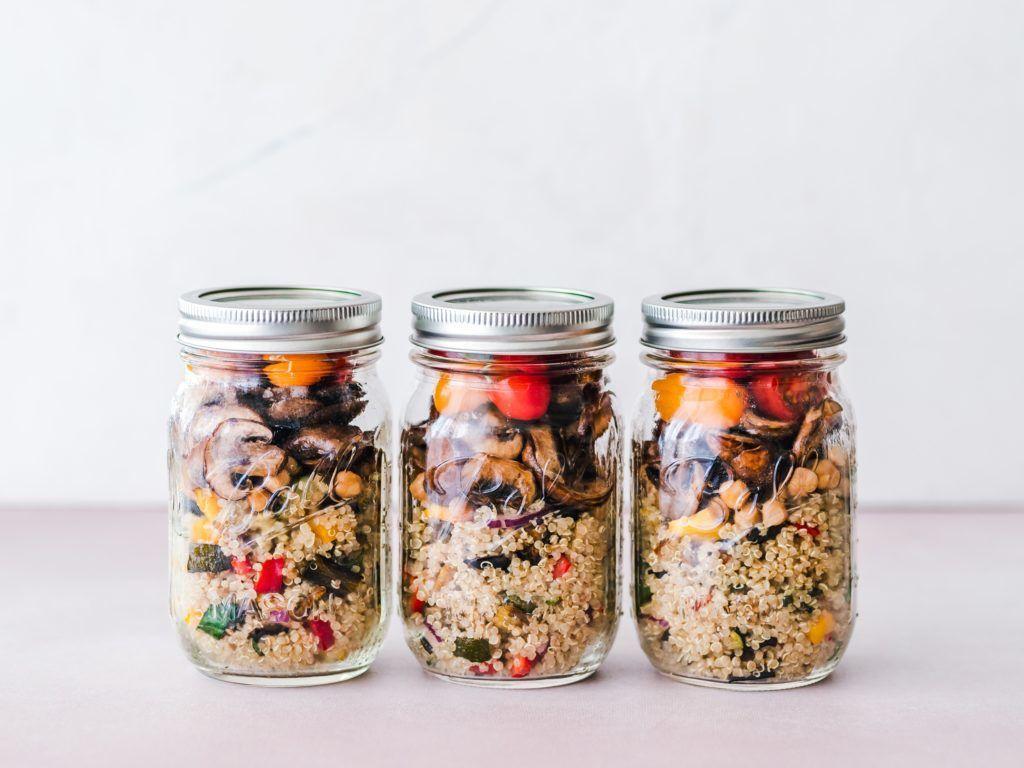

Aside from avoiding damage to your joints your diet is the number one contributor to your joint health. Joint health can be affected positively by nutrients that help repair damage and promote strong, flexible joints. On the flip side, food can also damage your joints by causing inflammation or by depriving your body of much-needed nutrients. A low inflammation diet combined with nutrient-rich foods is the best combination for healthy joints. If you’re looking for meal ideas, which foods are best for joint health, or which vitamins & nutrients contribute most to joint health and lower inflammation, we got you covered.
What Should You Eat?
Less processed is usually better. Eating whole foods helps you avoid trans fats and other additives that can cause inflammation. Fried foods and charred meat can also negatively contribute to inflammation. There isn’t a single superfood that will cure all your joint pain. Rather, a well-balanced diet filled with food that causes minimal inflammation is the way to go.
Anthocyanins
Cherries and other rich colored berries contain a flavonoid called Anthocyanins. This flavonoid has several health benefits including reducing inflammation. Some foods that have been found to contain high amounts of anthocyanins include most richly colored berries, acai, kidney beans, pomegranates, red onions, grapes, and tomatoes.

Vitamin C
Foods that promote collagen growth are key to good joint health. Collagen affects cartilage, tendons, ligaments and the tissue that cushions your joints. Vitamin C assists in the process of making collagen, therefore foods that are high in Vitamin C are great for maintaining good joint health. Red peppers and citrus fruits such as oranges, mandarins, and tangerines are a great source of vitamin C. Tomatoes (also a great source of anthocyanins) and pineapples are some great alternatives as well.

Calcium
Everyone knows that for strong bones you need calcium. One thing we don’t often think of is that joint health is greatly affected by bone health. Many foods that contain calcium also contain Vitamin D and Omega-3 fatty acids which are also great for joint health. Salmon and other naturally oily fish such as trout have a lot of omega-3s which have a positive effect on inflammation. Yogurt and milk are both high in calcium and vitamin D as well. But beware, dairy products can cause inflammation. Milk alternatives such as almond, cashew, or hemp milk are a great option. Many yogurt products add a lot of sugar as well so make sure to read the label.

Whole Grains
There are going to be times when you’ll have to eat foods that cause inflammation. When eating grains it’s best to avoid refined grains such as flour. Whole grains like oatmeal have been linked to lower levels of inflammation. Quinoa, barley, and brown rice are a few grains that are linked to lower levels of inflammation as well.

Curcumin
Similar to cinnamon and ginger, turmeric has anti-inflammatory properties. This comes from the chemical curcumin. You can simply add turmeric (or curry powder) to your recipes or take it as a supplement. Either way, you’re bound to reduce inflammation and improve your joint health.

Omega-3 Fatty Acids
Oily fish like salmon and trout can have high levels of omega-3s. I don’t know about you but I can’t eat fish every day. The good news is that there are several other foods that are high in omega-3s. Walnuts, flaxseeds, and canola oil all provide omega-3s which have been linked to reducing inflammation.

Beta-Carotene
Darkly colored leafy greens are rich in nutrients that are good for joint health including beta-carotene. Kale, broccoli, bok choy, and collard greens are some vegetables which are high in beta-carotene.

Vitamin D
Most milk alternatives are fortified with vitamin D but your body can also synthesize vitamin D from sunlight. Just 10-15 minutes a day can produce enough vitamin D for your body.

Meal Ideas
Now that we know which nutrients are important to joint health, and which foods are rich on those nutrients, we can start to think of some meals to include them in our diet. Below is a brief list of meal prep ideas for breakfast, lunch, and dinner as well as some smart snacks for good joint health.
Breakfast
- Oatmeal with berries and nuts
- Whole grain toast
- Almond milk
Lunch
- Quinoa salad with broccoli & red peppers
Snack
- Yogurt with granola
- Cherries
- Walnuts
Dinner
- Salmon
- Kale salad with nuts and tomatoes
If you have any other meal ideas for healthy joints we’d love to hear from you. For more reading on anti-inflammation diets and food for healthy joints we recommend books by Nancy Clark.

Request Appointment
Get Directions!
Hours
| Monday | 9:00 am – 6:00 pm |
|---|---|
| Tuesday | 9:00 am – 6:00 pm |
| Wednesday | 9:00 am – 6:00 pm |
| Thursday | 9:00 am – 6:00 pm |
| Friday | 9:00 am – 6:00 pm |
| Saturday | Closed |
| Sunday | Closed |
Areas We Serve
Portland Chiropractic Office: Located in the East Portland/Gresham area means our offices are easily accessible from I-205 and I-84 for your convenience. Our Portland chiropractic offices are conveniently located in Portland near Gresham. Our service area includes Portland, Gresham, Troutdale, Parkrose, Mount Tabor, Mill Park, Wood Village, Fairview, Clackamas, Rockwood and the rest of the Portland Metro Area including Vancouver, Washington. If you're in the area, just search "Chiropractors Near Me" and you'll find us.